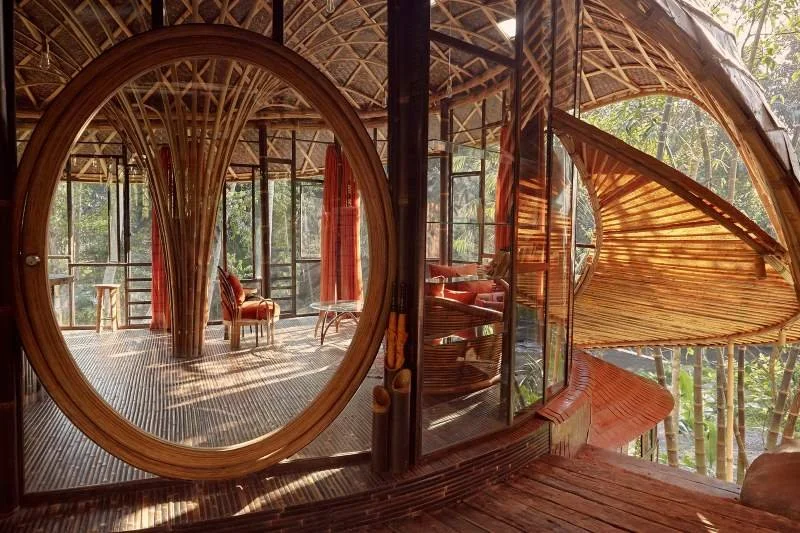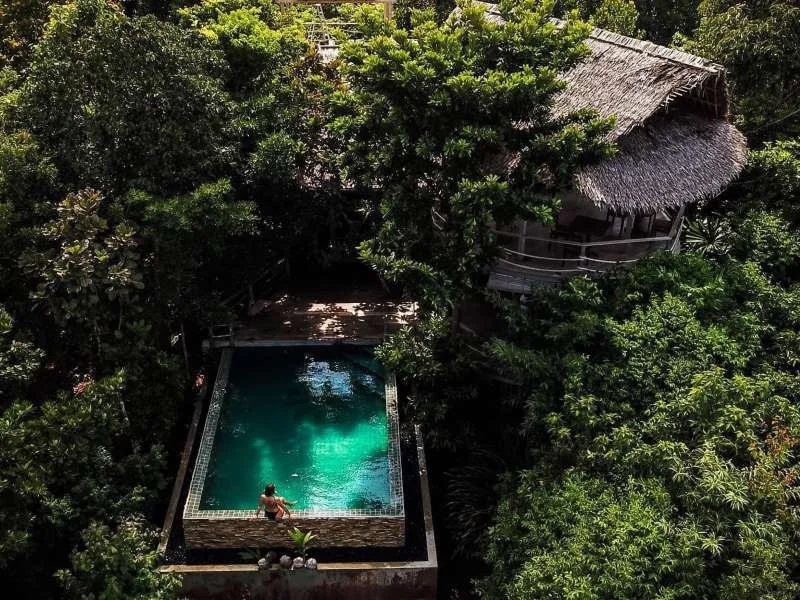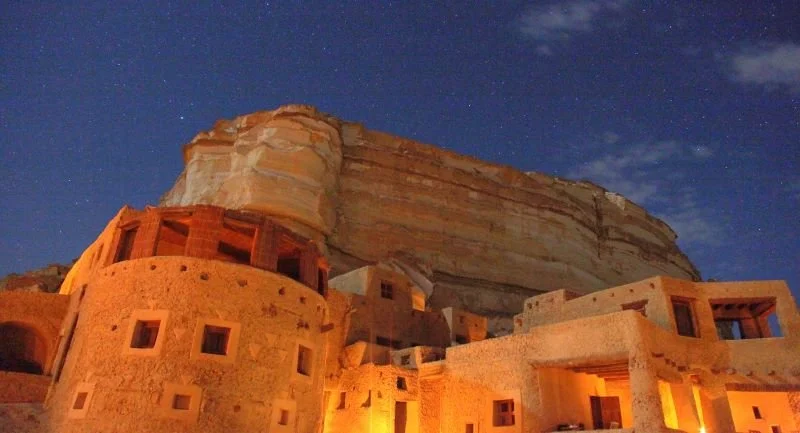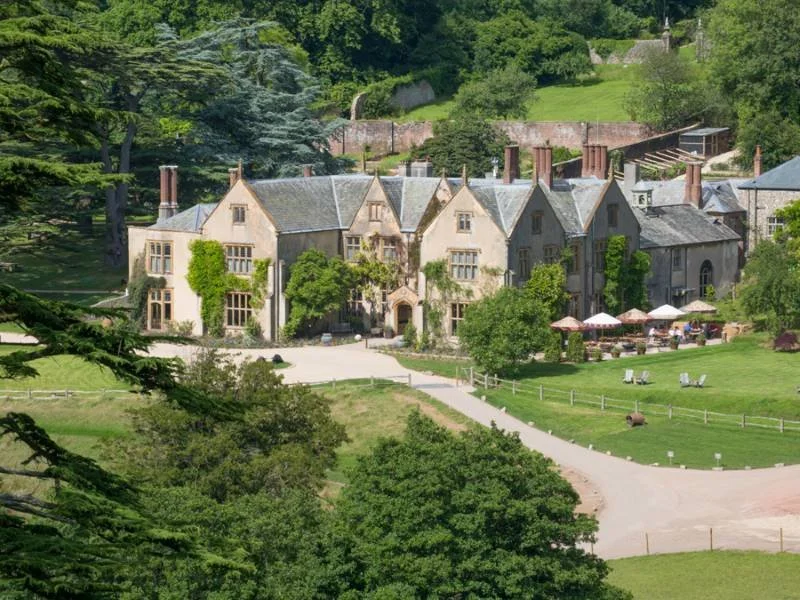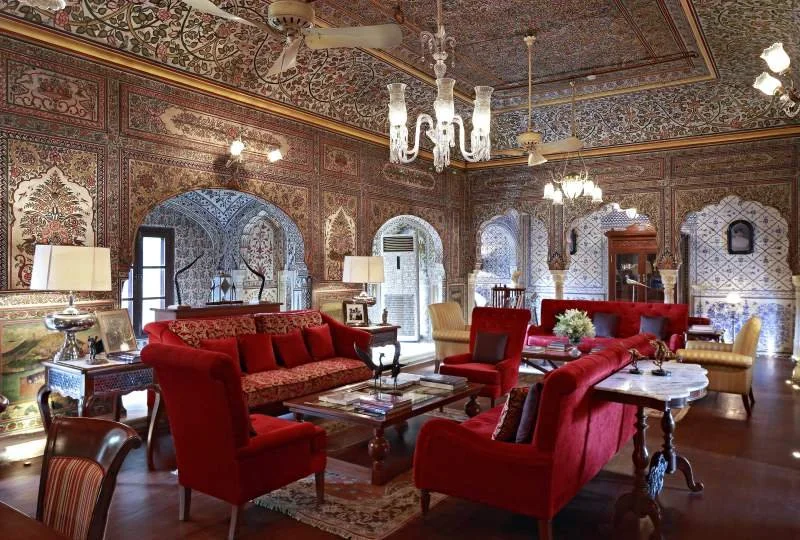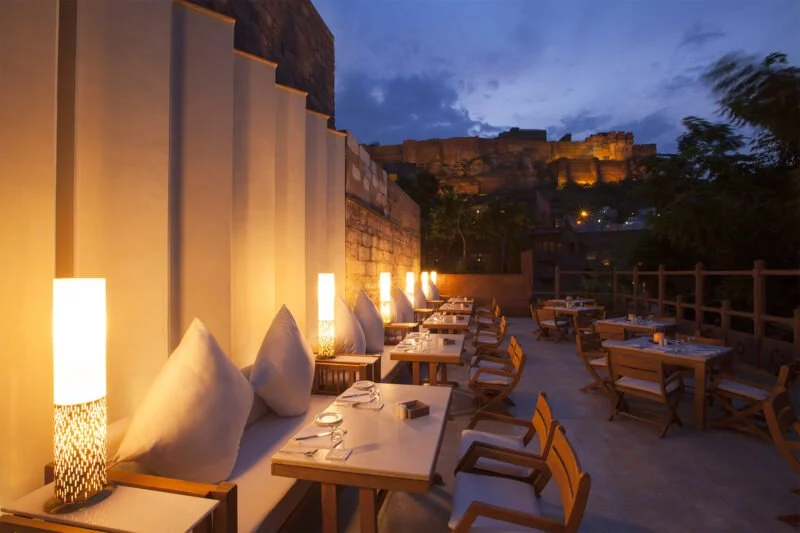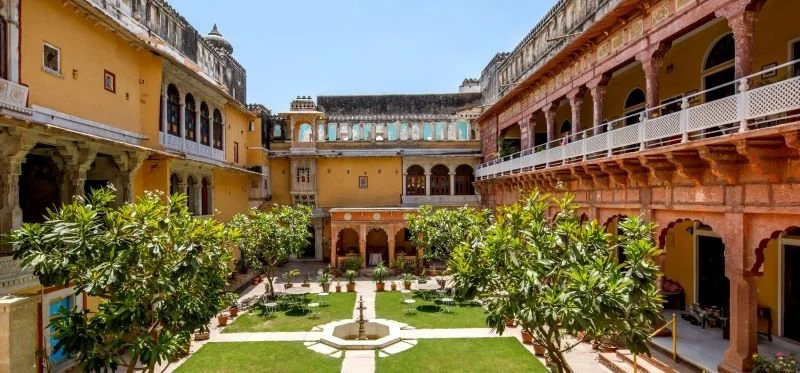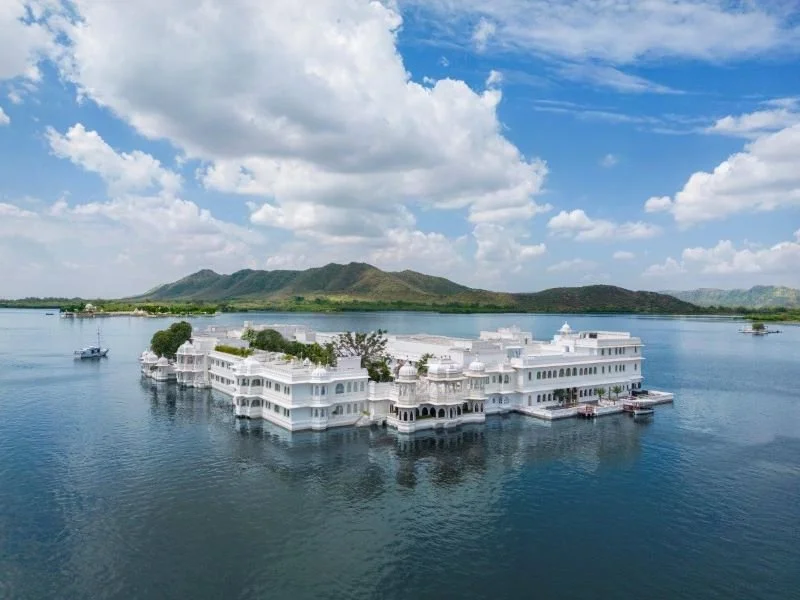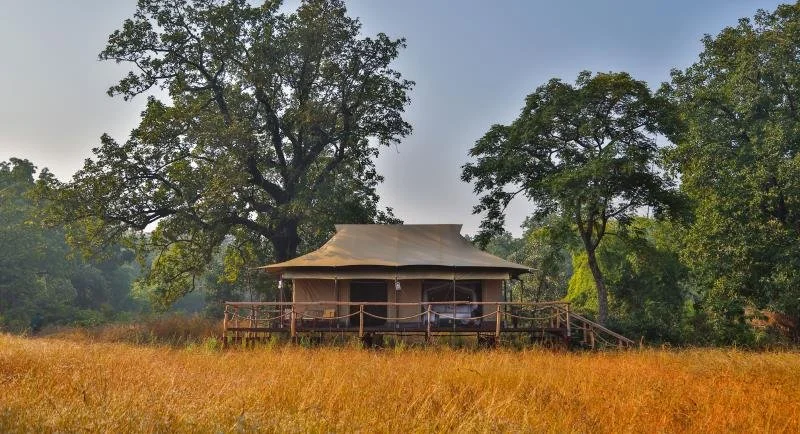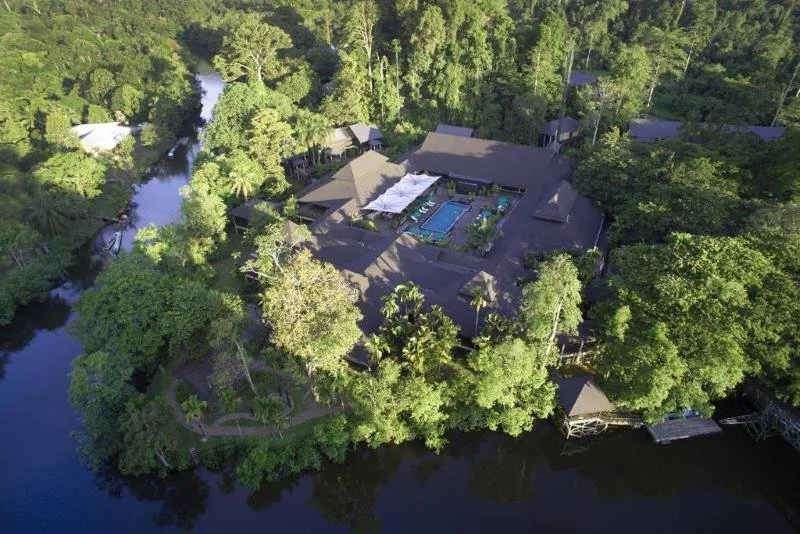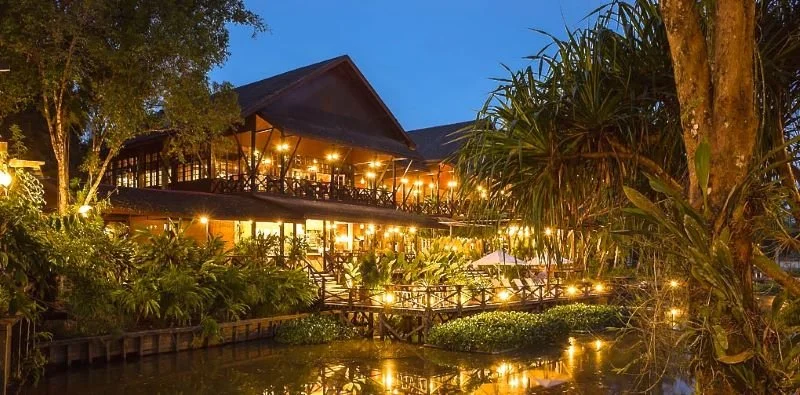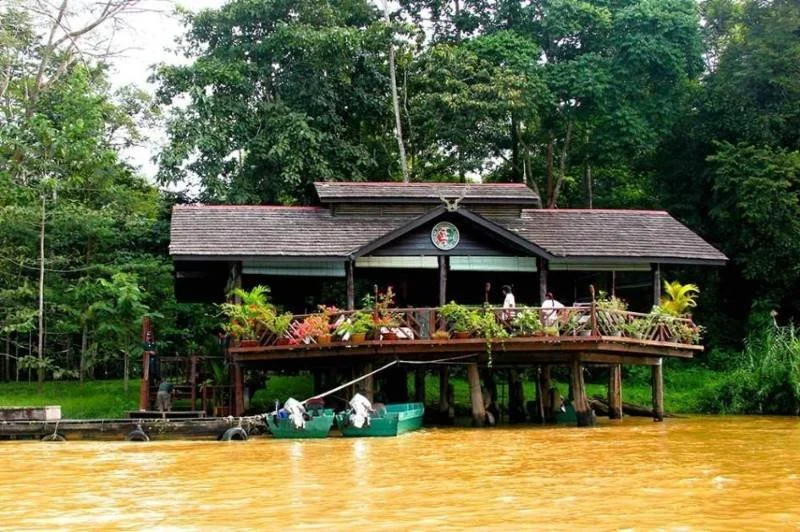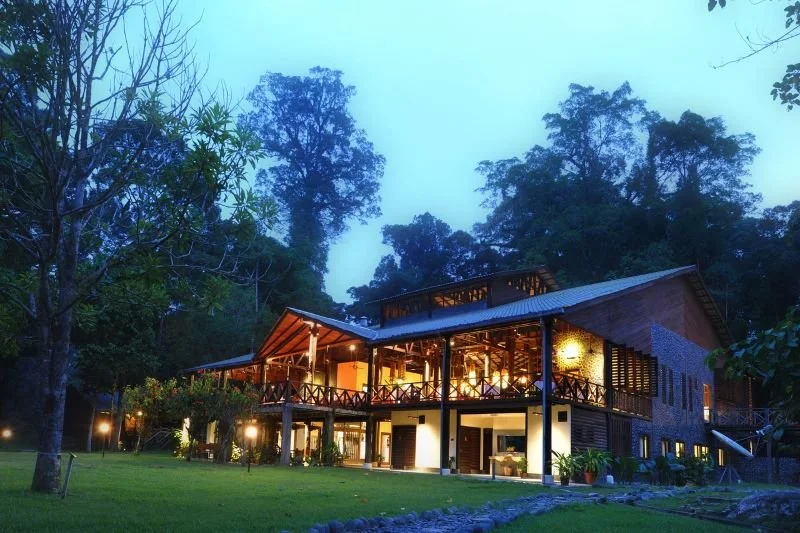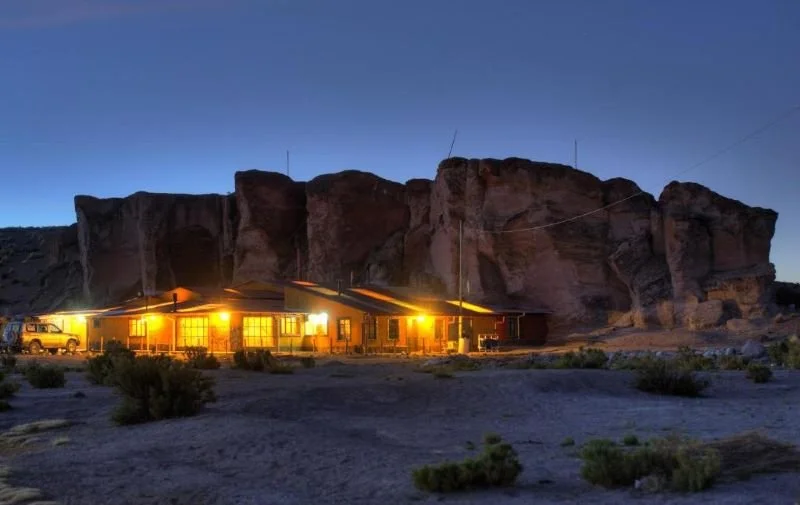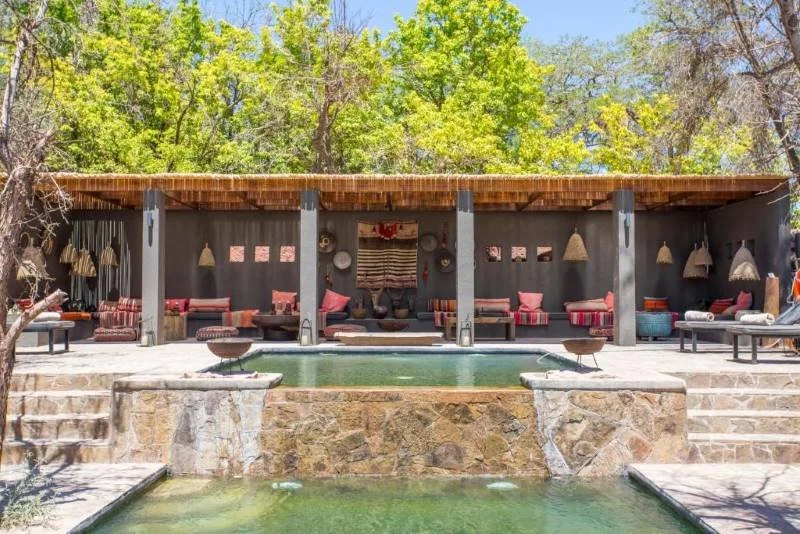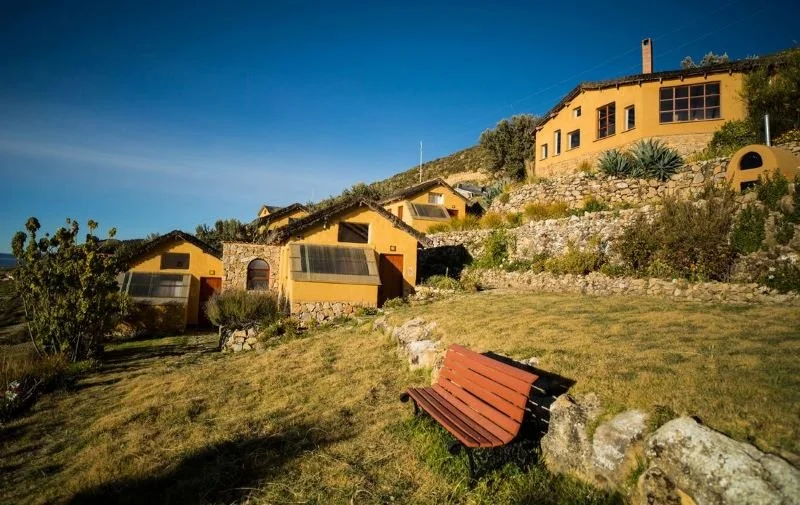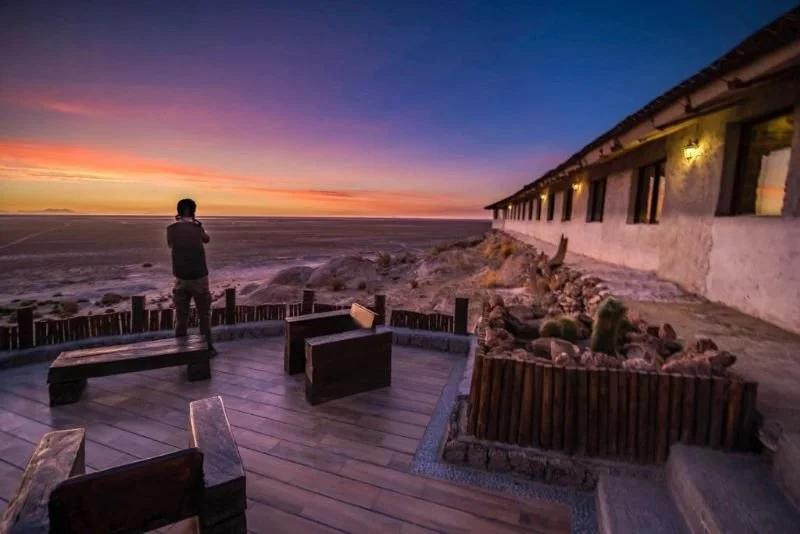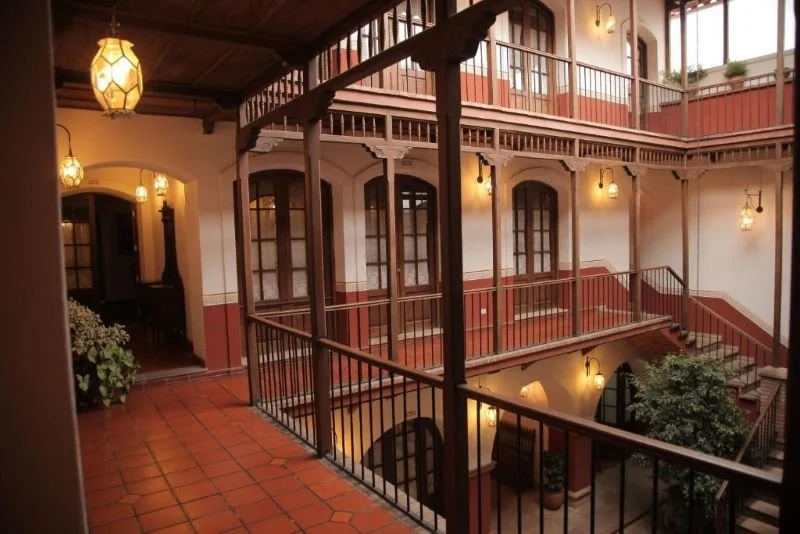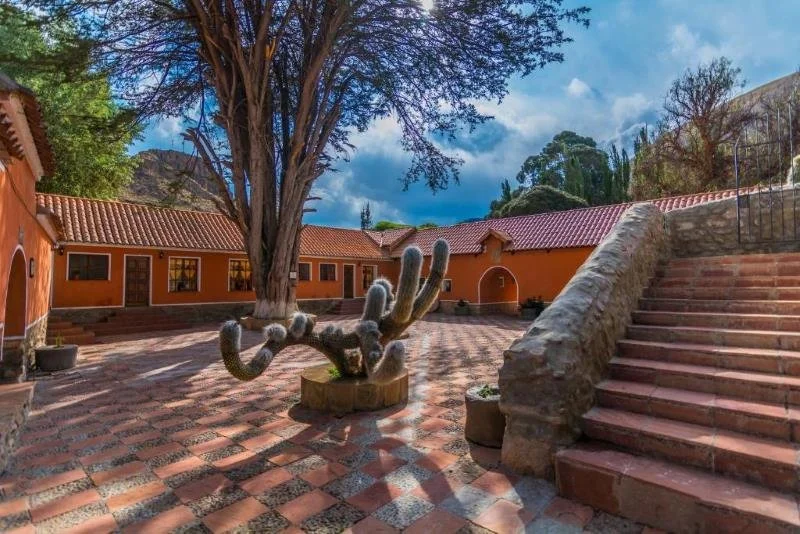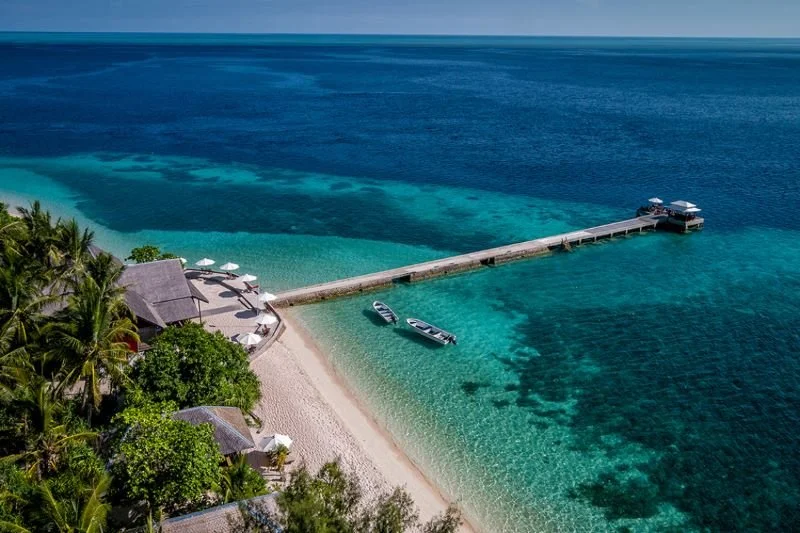Top 21 Sustainable Hotels for Green Getaways in 2024
As the world becomes increasingly aware of the environmental impacts of travel, the hospitality industry is stepping up to meet the demand for more sustainable hotels. In 2024, travelers no longer have to choose between luxury and sustainability. With these green hotels, they can enjoy the best of both worlds.
Top Sustainable Hotels Worldwide List
From energy-efficient operations and local natural materials to initiatives that preserve the natural beauty and biodiversity of their locales, these top 21 sustainable hotels are leading the way in reducing their carbon footprint.
Whether nestled in secluded forests, perched on pristine beaches, or situated in bustling city centers, each of these hotels and boutique hotels offers a unique, environmentally responsible experience without compromising on comfort or style.
1. Bambu Indah, Bali, Indonesia
Bambu Indah, meaning "Beautiful Bamboo" in Indonesian, is more than just a place to stay, it's an experience that intertwines luxury with sustainability, inviting guests to immerse themselves in the natural beauty of Bali while contributing positively to the environment.
Each house within the property is crafted from bamboo, one of the most sustainable building materials on Earth due to its rapid growth and carbon sequestration capabilities.
This sustainable hotel utilizes natural swimming pools that are cleansed and filtered by plants, eliminating the need for harmful chemicals.
Rainwater harvesting systems collect and store rainwater for use throughout the property, significantly reducing water consumption.
Furthermore, organic waste is composted and used in the hotel's permaculture gardens, which supply fresh, organic produce for the kitchen, ensuring guests enjoy farm-to-table meals with fresh ingredients that are both delicious and sustainable.
2. The Hideout, Koh Yao Noi, Thailand
The accommodations at The Hideout are designed to harmonize with the environment, constructed from natural and locally sourced materials.
Thatched roofs, bamboo structures, and open-air designs allow for natural ventilation, reducing the need for air conditioning.
Each villa is strategically placed to offer stunning views of the lush landscape and azure waters, providing a private, intimate connection with nature.
Solar panels generate a significant portion of the hotel's energy, minimizing its reliance on non-renewable resources.
Water conservation is also a key focus, with rainwater collection systems and water-saving fixtures installed throughout the property.
The hotel's commitment to reducing plastic usage is evident in its ban on single-use plastics, offering guests reusable containers and straws instead.
3. Adrère Amellal, Egypt
Adrère Amellal, set against the stunning backdrop of the Siwa Oasis, is a marvel of eco-friendly design and traditional craftsmanship.
This hotel eschews modern conveniences like electricity and internet, inviting guests to unwind and reconnect with nature in an atmosphere of serene simplicity.
Built entirely from salt rock and mud brick, the guest rooms and suites are designed to blend with the desert landscape, offering cool respite from the heat without the need for air conditioning.
The absence of electricity means that rooms are lit by candles and stars, creating an enchanting atmosphere that encourages mindfulness and relaxation.
The lodge uses solar panels to power essential operations and relies on natural spring water for irrigation, emphasizing water conservation in this arid environment.
Organic waste is composted, and the lodge has a strict policy against single-use plastics, further reducing its environmental impact.
4. The Kip, Sri Lanka
Designed with an eye for both aesthetics and eco-consciousness, The Kip's accommodations feature natural materials, local craftsmanship, and a design that invites the outdoors in.
Rooms and common areas are adorned with reclaimed wood, natural fibers, and artisan-made furnishings, creating a warm, earthy ambiance that reflects the surrounding landscape.
The thoughtful use of natural light and ventilation reduces the reliance on artificial lighting and air conditioning, further enhancing the eco-friendly experience.
This eco friendly hotel employs water conservation measures, including rainwater harvesting and water-efficient fixtures, to sustainably manage this precious resource.
Organic waste is composted, and a strong emphasis is placed on reducing waste, particularly plastic, through the use of refillable containers and other sustainable alternatives.
5. The Pig at Combe, United Kingdom
Surrounded by the lush Devon countryside, this hotel embodies a farm-to-table ethos that is deeply ingrained in every aspect of its operation.
With its own kitchen gardens, orchards, and a commitment to local sourcing, The Pig at Combe offers a stay that celebrates the bounty of the land while minimizing environmental impact.
The use of natural materials, antique furnishings, and energy-efficient lighting ensures that guests can enjoy luxury and comfort without compromising on their environmental values.
The hotel's impressive kitchen gardens and orchards supply the majority of the produce used in the restaurant, reducing the need for imported goods and highlighting the flavors of the season.
The Pig at Combe also engages in biodiversity projects to protect and enhance local wildlife habitats, making it a true champion of environmental stewardship.
6. Samode Haveli, Jaipur, India
Samode Haveli's architecture and interior decor reflect the grandeur and opulence of Rajasthan's royal past.
Intricately painted walls, hand-carved marble, and traditional Rajasthani artwork adorn the premises, offering a captivating visual journey through the rich cultural tapestry of the region.
The haveli's courtyards, lush gardens, and ornate dining halls invite guests to step back in time and experience the splendor of princely India.
Efforts to preserve water, reduce energy consumption, and minimize waste are part of the haveli's commitment to responsible tourism.
Additionally, by employing local artisans, chefs, and guides, Samode Haveli supports the local economy and offers guests authentic experiences that celebrate Jaipur's rich culture and traditions.
7. RAAS Jodhpur, India
The hotel is primarily built from the region's iconic red sandstone, complementing the ancient fort above, and features intricately carved lattice work that not only pays homage to local craftsmanship but also serves as an eco-friendly cooling system.
Each room and suite is designed with an emphasis on sustainability, utilizing natural materials and traditional techniques to ensure comfort and reduce environmental impact.
The rooms boast stunning views of the Mehrangarh Fort, the city's skyline, or the hotel's beautifully landscaped gardens, providing an immersive experience of Jodhpur's architectural beauty and natural landscape.
The hotel employs solar heating, rainwater harvesting, and waste recycling programs to minimize its ecological footprint.
8. Chanoud Garh, India
The property has been lovingly converted into a boutique hotel by the family, allowing guests to immerse themselves in the history and traditions of Rajputana.
Chanoud Garh's approach to sustainability is deeply rooted in its operations, from water conservation efforts and solar energy utilization to waste management practices.
The hotel sources its ingredients from local farmers and markets, promoting sustainable agriculture and supporting the local economy.
Moreover, Chanoud Garh is actively involved in community welfare projects, including education and healthcare initiatives, underscoring its commitment to giving back to the community that surrounds it.
9. Taj Lake Palace, Udaipur, India
The Taj Lake Palace emerges from the mist of Lake Pichola like a jewel of the Rajput era, offering guests an unparalleled experience of royal luxury.
Each room and suite in the palace is a testament to Rajasthani artistry and luxury, offering breathtaking views of the lake, the city palace, and the surrounding Aravalli mountains.
The hotel engages in water conservation, energy efficiency, and waste reduction practices to minimize its environmental footprint.
Additionally, it's a "local stone", it supports local artisans and craftsmen, showcasing their work within the hotel and contributing to the local economy.
10. The Ultimate Travelling Camp, Bandhavgarh, India
The camp is set up with minimal environmental impact, using eco-friendly materials and practices that ensure the preservation of the natural surroundings.
Solar energy, water conservation measures, and low-impact waste management systems are implemented to maintain harmony with the environment.
TUTC Bandhavgarh offers guided safari tours led by experienced naturalists who provide insightful commentary on the rich biodiversity of Bandhavgarh National Park.
The chefs use fresh, local ingredients to create a fusion of dishes that cater to a wide range of palates, complemented by a selection of fine wines.
11. Marriott Mulu National Park, Malásia
Set against the backdrop of lush tropical rainforests, the Marriott Mulu National Park Resort integrates luxury with the raw beauty of Borneo.
Efforts include energy conservation measures, waste reduction and recycling programs, and the use of eco-friendly products.
The resort also engages in conservation initiatives and supports the preservation of Gunung Mulu National Park, ensuring that guests’ stays contribute to the protection of this unique environment.
Guided tours offer experiences ranging from cave explorations to canopy walks and treks through ancient rainforests, allowing guests to witness the awe-inspiring beauty of Borneo’s wilderness.
Guests can enjoy local cuisine at the resort’s restaurants, which showcase the flavors of Malaysian and indigenous dishes.
Cultural performances and handicraft displays offer insights into the traditions of the local communities, enriching guests’ understanding of the area's cultural diversity.
12. Sepilok Jungle Resort, Malásia
Formerly known as the Sepilok Nature Resort, Sepilok Jungle Resort, is surrounded by beautifully landscaped gardens and a pristine lake, perfectly integrated into the natural environment, providing a peaceful retreat amidst Borneo's vibrant rainforest.
Committed to sustainability, Sepilok Jungle Resort has implemented various eco-friendly practices to ensure a minimal environmental footprint.
The use of natural materials in construction, energy-saving initiatives, and water conservation efforts are just a few ways the resort contributes to preserving the natural beauty of its location.
One of the highlights of staying at Sepilok Nature Resort is the easy access it provides to the Sepilok Orangutan Rehabilitation Centre, where guests can witness the incredible work being done to rehabilitate and release orangutans back into the wild.
13. Sukau Rainforest Lodge, Malásia
Constructed with traditional materials and operated on eco-friendly principles, the lodge is an exemplary model of sustainable tourism.
The lodge utilizes solar power, practices water conservation, and has a comprehensive waste management system in place.
It has also been involved in various conservation initiatives, including reforestation projects and wildlife monitoring, reinforcing its dedication to environmental stewardship.
Guided river cruises and nature walks led by experienced naturalists offer sightings of orangutans, proboscis monkeys, pygmy elephants, and a plethora of bird species.
By employing local staff, sourcing goods and services locally, and supporting community projects, the lodge contributes to the economic well-being of the region.
14. Borneo Rainforest Lodge, Malásia
The Borneo Rainforest Lodge is an oasis of comfort set against the backdrop of a 130-million-year-old rainforest, offering an experience that is both exhilarating and enlightening.
The lodge is designed to blend seamlessly with its surroundings, featuring chalets constructed from sustainable materials and positioned to offer breathtaking views of the lush landscape and the meandering Danum River.
Guests at the Borneo Rainforest Lodge can enjoy the tranquility of the rainforest from the comfort of their private chalets, which are equipped with modern amenities and designed with an emphasis on eco-friendliness and sustainability.
The use of solar power, water conservation practices, and responsible waste management reflects the lodge's commitment to preserving the pristine environment of the Danum Valley.
The lodge offers guided nature walks, night safaris, and canopy walks, allowing guests to explore the biodiversity of the area under the guidance of experienced naturalists.
By employing local staff, providing training and development opportunities, and sourcing locally produced goods, the lodge contributes to the economic well-being of the region.
15. Mallku Cueva Hotel - Villamar, Bolivia
Mallku Cueva Hotel stands out for its unique construction, with rooms and common areas carved directly into the hillside, offering protection from the Altiplano's extreme weather while blending seamlessly into the natural environment.
The use of passive solar heating, natural insulation, and traditional building techniques minimizes environmental impact while providing a cozy retreat after a day of exploration.
Rooms are adorned with textiles and handicrafts produced by local artisans, enriching the guest experience with the vibrant culture of the Andean peoples.
Guided tours arranged by the hotel allow guests to witness the ethereal beauty of the salt flats, explore ancient rock formations, and visit remote indigenous communities.
Efforts to reduce water usage, manage waste responsibly, and utilize renewable energy sources are integral to the hotel's operations.
Additionally, by employing local staff and offering tours led by knowledgeable local guides, the hotel supports economic development in the region and fosters a meaningful exchange between guests and the local community.
16. Desértica Hotel - San Pedro de Atacama, Chile
The hotel's architecture and interiors are inspired by the textures, colors, and materials of the desert, creating spaces that are both elegant and harmonious with the environment.
The hotel is built with eco-friendly materials and incorporates renewable energy sources, water conservation measures, and waste reduction practices to minimize its environmental impact.
Guided tours and excursions are available to visit the region's iconic salt flats, geysers, hot springs, and ancient archaeological sites.
The hotel also offers experiences that highlight the local indigenous culture, including traditional cuisine, crafts, and storytelling, allowing guests to gain a deeper understanding and appreciation of the area's history and traditions.
Guests can enjoy outdoor pools, spa treatments using local minerals and herbs, and yoga sessions with views of the majestic desert landscape.
17. Ecolodge Lake Titicaca - Isla del Sol, Bolivia
The lodge operates under eco-friendly practices that respect the delicate balance of Lake Titicaca's ecosystem, including solar power for heating and lighting, water conservation methods, and organic waste composting.
The lodge's location on Isla del Sol, considered a sacred site in Inca mythology, offers a unique opportunity to explore ancient ruins, hike traditional paths, and engage with local communities.
Each cabin offers spectacular views of Lake Titicaca, with private terraces that invite guests to contemplate the tranquil waters and the star-filled night sky.
The interiors are furnished with local crafts and textiles, providing a warm and authentic atmosphere that complements the breathtaking outdoor scenery.
Guests can embark on guided tours to nearby islands, such as the mystical Isla de la Luna, or take part in kayaking and sailing excursions on the lake's azure waters.
The surrounding trails offer hikers the chance to explore the island's natural beauty, including terraced hillsides, ancient agricultural sites, and panoramic viewpoints.
18. Luna Salada Hotel - Uyuni, Bolivia
Luna Salada Hotel stands as a testament to innovative design and sustainable construction, with walls, floors, and even furniture made from salt.
Water conservation, waste reduction, and energy efficiency are central to the hotel's operations.
Every room at Luna Salada Hotel offers mesmerizing views of the salt flats, allowing guests to witness the ever-changing colors of Salar de Uyuni from sunrise to sunset.
The hotel serves as a gateway to adventure, offering guided tours of the salt flats, including visits to Isla Incahuasi with its ancient cacti, the surreal train cemetery, and the colorful lagoons populated by flamingos.
The hotel's restaurant features traditional Bolivian cuisine made from local ingredients, offering diners a genuine taste of the Andean highlands.
Additionally, the hotel supports local artisans by showcasing their crafts, contributing to the preservation of cultural heritage and providing economic benefits to the community.
19. Parador Santa Maria la Real - Sucre, Bolivia
The hotel's architecture and decor reflect the rich colonial history of Sucre, with meticulously restored interiors that feature antique furnishings, original frescoes, and colonial artworks.
The hotel offers a range of accommodations, from cozy rooms to spacious suites, each uniquely decorated to highlight the building's colonial features while providing modern comforts.
The hotel organizes guided tours of the city's colonial landmarks, museums, and churches, providing guests with insights into Sucre's cultural heritage.
Additionally, the hotel often hosts cultural events, music performances, and art exhibitions, further immersing guests in the local culture.
The hotel's restaurant offers a menu that blends traditional Bolivian recipes with contemporary culinary techniques, using the freshest local ingredients.
Parador Santa Maria la Real stands as an emblem of Bolivian heritage, offering guests an unparalleled opportunity to delve into the country's colonial past while enjoying the comforts of modern luxury, all while reducing their carbon footprint.
20. Hotel Museum Cayara - Potosi, Bolivia
The hacienda is filled with artifacts, antiques, and documents that date back to the Spanish conquest, offering guests an intimate look at the daily life, labor, and legacy of those who lived and worked in the shadow of Cerro Rico.
Situated in the vicinity of Potosí, once known as the world's largest silver source, Hotel Museo Cayara offers guests a unique base for exploring the city's UNESCO World Heritage-listed sites, including the infamous Cerro Rico mines.
The hotel can arrange guided tours to these historical landmarks, where visitors can learn about the profound impact of silver mining on global economics, local communities, and the indigenous population.
By staying at the hotel, guests contribute to the preservation of this significant historical site and support the local economy.
The hotel often hosts cultural events, workshops, and exhibitions that showcase the traditions, art, and cuisine of the region, providing guests with an authentic and enriching cultural experience.
The hotel's gardens and outdoor spaces are perfect for relaxation and contemplation, making it an ideal retreat for those seeking peace and connection with nature.
21. Wakatobi Resort, Indonesia
Wakatobi Luxury Dive Resort is nestled on a beautiful and secluded island, offering guests direct access to the Coral Triangle's diverse marine life.
The resort operates its own marine preserve, ensuring that the reefs and their inhabitants are protected and preserved for future generations.
Divers and snorkelers can explore vibrant coral gardens, steep drop-offs, and a plethora of sea creatures in crystal-clear waters, guided by the resort's experienced and conservation-minded dive staff.
The resort's commitment to sustainability extends to its use of renewable energy sources, water conservation practices, and organic waste management.
A significant portion of the resort's revenue is reinvested into conservation initiatives, including reef restoration projects, marine life protection, and education programs for local communities.
Wakatobi's dive operations are designed to be as eco-friendly as possible, adhering to strict no-touch, no-take policies to protect the underwater ecosystem.
Guests can also participate in marine biology workshops, conservation activities, and guided eco-tours, enhancing their understanding of marine ecosystems and the importance of preserving the world's coral reefs.
Sustainable Practices: What makes a hotel sustainable?
In the quest for sustainability, the featured hotels are not just places to stay—they are pioneers in innovation. These establishments have implemented a variety of sustainability practices that not only reduce their environmental footprint but also enhance the guest experience.
Here, we delve into the specific practices that make these hotels leaders in the hospitality industry's shift toward sustainability.
1. Building and Construction
Materials: Use of local, natural, and sustainable materials like bamboo, mud brick, and salt rock to minimize environmental impact.
Example: Bambu Indah uses bamboo for its structures due to its sustainability.
Design: Incorporation of eco-friendly architectural designs that enhance natural lighting and ventilation, reducing the need for artificial climate control.
Example: The Hideout uses open-air designs and thatched roofs to promote natural ventilation.
2. Energy Efficiency
Solar Power: Utilization of solar panels to generate clean energy.
Example: The Kip uses solar panels to reduce reliance on non-renewable energy sources.
Other Renewable Energy Sources: Employing alternative energy solutions such as passive solar heating and solar water heating.
Example: Mallku Cueva Hotel uses passive solar heating to maintain temperature.
3. Water Conservation
Rainwater Harvesting: Systems to collect and reuse rainwater for various needs.
Example: Bambu Indah collects rainwater for use across the property.
Water-Efficient Fixtures: Installation of fixtures that reduce water use.
Example: The Ultimate Travelling Camp employs low-flow fixtures to conserve water.
4. Waste Management
Composting: Organic waste is composted and used for gardening.
Example: Adrère Amellal composts organic waste for use in its gardens.
Recycling Programs: Implementing thorough recycling procedures to handle waste responsibly.
Example: Marriott Mulu National Park Resort emphasizes waste recycling and reduction.
5. Eco-Friendly Operations
Chemical-Free Processes: Using natural pool cleaning systems and avoiding harmful chemicals.
Example: Bambu Indah uses plant-based filtration for its swimming pools.
Plastic Reduction: Banning single-use plastics and promoting reusable alternatives.
Example: The Hideout provides reusable containers and avoids single-use plastics.
6. Local and Organic Sourcing
Farm-to-Table Dining: Hotels with their own gardens and partnerships with local farms to supply fresh, organic food.
Example: The Pig at Combe uses produce from its own gardens and local farms.
Supporting Local Communities: Engaging local artisans, guides, and staff, thereby boosting the local economy and reducing carbon footprint related to importing goods.
Example: Samode Haveli employs local artisans and guides to enrich guest experiences and support the community.
7. Conservation and Local Community Engagement
Wildlife and Natural Conservation: Participation in or establishment of conservation projects to protect local wildlife and habitats.
Example: Wakatobi Dive Resort operates its own marine preserve to protect coral reefs.
Cultural Preservation and Education: Hosting cultural events and educational programs that promote local heritage and environmental awareness.
Example: Luna Salada Hotel showcases local Bolivian crafts and culture.
8. Guest Engagement and Education
Eco-Education: Providing guests with information and educational programs about sustainability practices.
Example: Guests at Wakatobi can participate in marine biology workshops to learn about marine conservation.
Encouraging Eco-Friendly Activities: Offering experiences that promote environmental respect and appreciation, like guided eco-tours or wildlife safaris.
Example: Sukau Rainforest Lodge offers guided eco-tours that educate guests on local wildlife and conservation efforts.
Have your eyes, heart, and wallet set on Indonesia? Check out our post on the Top 5 Eco-Friendly Luxury Hotels in Indonesia

